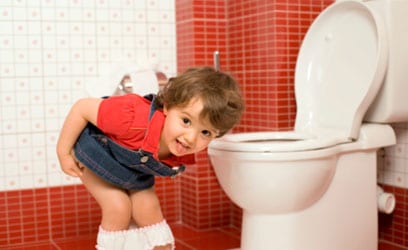Search Results for: discomfort
Colon Cleansing Food Diet
It’s no wonder you often feel bloated and sluggish after inhaling a high-fat meal on the run; usually, those types of convenience foods offer little in the way of nutrients but more than enough of the “bad stuff.” Foods that are high in fat, calorie-dense and chemically preserved settle in the colon where they wreak havoc on the digestive tract, causing many physical discomforts such as constipation, headache and fatigue.
Potty Training Tips for Toddlers
It’s no surprise because of the high cost of diapers and the tedious effort that goes into changing them, that parents are excited when children finally achieve potty training success. Getting a child to that point can be a challenge, particularly for stubborn children. Because each toddler is different, it is important to learn several potty training tips to assist your toddler on his way to a diaper free lifestyle.
Effects of Aging on Sex for Women
Engaging in sex is both a normal function and an enjoyable experience that is essential to a woman’s personal health as well helping to maintain a viable relationship with her spouse or partner. But as a woman ages, her attitudes about sex may change. How a woman feels physically as well as mentally can play a part in how aging affects her sex drive. Although aging often decreases a woman’s desire for sex, there are many things she can do to alter her libido and enhance her sexual experience.
What Is a Gluten Free Diet?
Gluten free diets exclude all foods containing gluten, the protein found in wheat. Gluten free diets are a life saver for many people and it is essential for those suffering from Celiac disease. Gluten free diets are often suggested for children and adults on the autism spectrum, and some people do find that they are quite effective. Fortunately, with smart cooking and alternative products, gluten free diets can be varied and flavorful.
Different Techniques for Potty Training
The first step in determining an approach to potty training is looking for signs of readiness in your toddler. Most toddlers will show readiness for potty training between the ages of 2 and 3 years. Look for clues in body language, such as squatting or tugging at the diaper; word use, such as potty or poo poo; cognitive cues, such as understanding that the diaper is wet; social cues, such as the toddler talking about big boys and girls who use the potty; behavioral signs, such as responding to praise; and modeling signs, such as imitating parents or older siblings.



